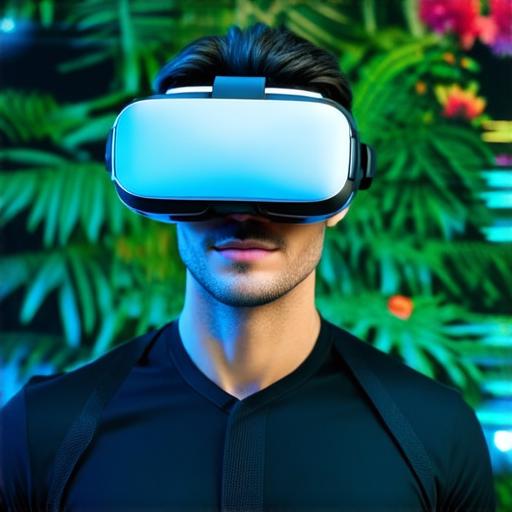
What are the potential uses of virtual reality in the future?
Virtual reality (VR) is a rapidly growing technology that has already begun to revolutionize various industries such as gaming, healthcare, and education. However, VR’s potential uses are almost limitless, and we can expect it to continue transforming our lives in ways we cannot yet imagine.
1. Real Estate and Urban Planning
Virtual reality can revolutionize the real estate industry by allowing potential buyers and renters to explore properties remotely. This not only saves time and money, but it also eliminates the need for physical showings. Moreover, VR can provide architects and urban planners with a realistic simulation of their designs, allowing them to make changes and adjustments in real-time.
2. Remote Collaboration
Virtual reality can enable remote collaboration by allowing people from different parts of the world to interact with each other as if they were in the same room. This is particularly useful for businesses that have teams located in different countries, such as multinational corporations. With VR, employees can collaborate on projects and share ideas in real-time without the need for costly travel.
3. Tourism and Hospitality
Virtual reality can transform the tourism industry by allowing people to explore destinations around the world from the comfort of their own homes. This not only saves time and money, but it also provides a unique and immersive experience that is hard to replicate in person. Hotels and resorts can also use VR to create virtual tours of their properties, giving potential guests a better idea of what to expect when they visit.
4. Education and Training

Virtual reality can revolutionize the way we learn by providing immersive and interactive experiences that are hard to replicate in person. Students can use VR to explore historical events, scientific concepts, and cultural traditions in a more engaging and memorable way. Additionally, VR can provide healthcare professionals with realistic simulations of surgical procedures, allowing them to practice and perfect their skills without risking patient safety.
5. Entertainment and Gaming
Virtual reality can transform the entertainment industry by providing gamers with immersive experiences that are unlike anything they have ever experienced before. With VR, gamers can step into the game world and interact with characters and objects in a way that is not possible with traditional gaming devices. Additionally, VR can provide new opportunities for filmmakers and storytellers to create unique and engaging experiences for audiences.
In conclusion, virtual reality has the potential to transform our lives in ways we cannot yet imagine. As the technology continues to evolve, we can expect it to be used in a wide range of industries, from real estate and urban planning to education and entertainment. The future of virtual reality is bright, and its impact on our society will only continue to grow.


